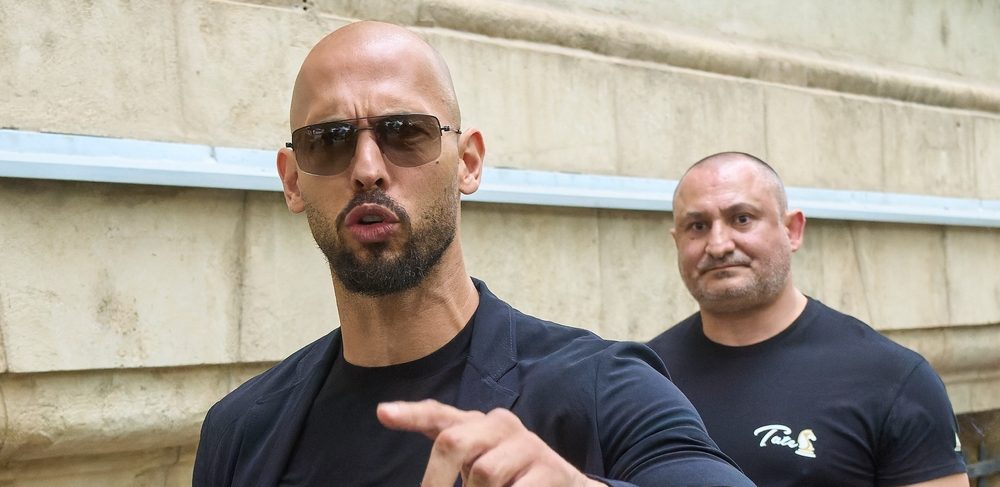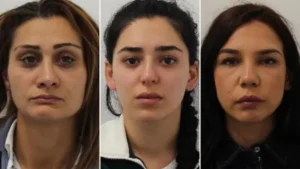Why Andrew Tate's Fate Could Be Sealed by a New U.S. President: Donald Trump’s Influence.
While Andrew Tate’s legal troubles are very much centred in Romania, there is an interesting element to consider: the potential impact of global political dynamics, particularly the role of the United States in international law and criminal justice. With Donald Trump poised for a political comeback as a potential 2024 presidential candidate, some have speculated that his influence could shape the fate of controversial figures like Andrew Tate, particularly if the two ever become politically intertwined.
At first glance, Trump and Tate may not appear to have much in common beyond their larger-than-life personas and frequent media attention. However, both men have courted public controversy for years, operating in spaces where legal and ethical boundaries have often been tested. Their shared affinity for unfiltered, provocative statements and behaviour has earned them both powerful support bases, but also brought them into conflict with law enforcement, regulatory bodies, and the public.
But what could Donald Trump possibly have to do with Tate’s legal future? The answer lies in the intersection of international politics, diplomatic power, and legal influence—a web where Trump’s presidency could play a pivotal role in determining whether Tate spends his life behind bars.
Trump’s Political Influence and Global Reach
As the former president of the United States and a highly influential political figure, Trump wields significant sway over U.S. policy and international relations. The U.S. government, as a global superpower, has a vested interest in the enforcement of international law, particularly when it comes to human trafficking, organised crime, and other serious criminal activities. Given Tate's connection to multiple high-profile individuals and the broader network of organised crime, his case could very well fall within the purview of U.S. foreign policy, especially under a Trump administration.
If Trump were to return to office, his tough stance on criminal justice, including his high-profile rhetoric around issues like human trafficking, could bolster efforts to bring those responsible for exploiting women into legal accountability. Trump’s administration could put diplomatic pressure on Romania or other jurisdictions involved in Tate’s case to expedite proceedings, or even attempt to influence the legal process directly—something he has demonstrated in the past with his support for international law enforcement initiatives.
The U.S. and Its Role in Combatting Human Trafficking
Trump’s administration was notably aggressive in pursuing anti-human trafficking measures. His President's Commission on Combatting Drug Addiction and the Opioid Crisis, for example, highlighted human trafficking as a significant concern, as did other executive orders aimed at increasing cooperation between U.S. and international law enforcement agencies to tackle organised crime.
If Tate’s trafficking activities were found to extend beyond Romania, particularly if American citizens or interests were involved, the U.S. Justice Department could get involved. With Trump’s connections and support within law enforcement circles, he could leverage diplomatic pressure to ensure Tate faces severe consequences. Moreover, if there were any link between Tate’s operations and the U.S. — say, through financial ties, online exploitation, or the use of American technology or platforms — Trump might push for an extrajudicial approach, allowing U.S. authorities to pursue legal avenues that make it much harder for Tate to escape accountability.
The Media Factor: Trump’s Influence on Public Perception
One of the more subtle yet impactful ways that Trump’s political influence could "finish off" Tate lies in public perception. Both men have used the media to their advantage, building up personal brands that often ride on controversy, inflammatory statements, and public spectacles. However, this public persona also makes them both highly vulnerable to the media’s scrutiny when their personal or legal issues come to light.
Trump’s history of controlling the narrative through media channels could play a role in shaping how the public views Tate, particularly if their cases align in some way. For example, Trump’s connections to right-wing media outlets, including Fox News, Newsmax, and others, could frame the discourse in a way that pressures international entities to take swift action in the case of Andrew Tate. Trump’s influence over media platforms could intensify public pressure for harsher legal consequences for controversial figures, ensuring that figures like Tate receive little sympathy.
Trump is also a master at framing his opponents—whether they be political, legal, or personal—as enemies of society or of American values. If Tate’s case gains more traction in the media, Trump could position the former kickboxer as an emblem of everything wrong with the global criminal underworld. This kind of rhetoric could indirectly influence public opinion and, by extension, the legal system, pressuring authorities in Romania or other nations to take a more aggressive stance against Tate.
Trump’s "Law and Order" Agenda
Perhaps one of the most significant ways in which Trump could influence Tate’s future is through his ongoing "law and order" narrative. Throughout his presidency and beyond, Trump has repeatedly positioned himself as a staunch advocate for strong, no-nonsense law enforcement. His stance on criminal justice has historically been tough, emphasising penalties for those engaged in serious criminal activities, especially human trafficking.
If Trump were to return to the Oval Office, his law and order agenda would likely focus on strengthening international anti-crime initiatives and ensuring that figures involved in human trafficking, exploitation, or organised crime face the full brunt of the law. Given that Tate’s charges involve allegations of exploiting women for profit, this could make him a key target for Trump’s policies, especially if the U.S. government chooses to collaborate with Romanian authorities or assist in prosecuting the case.
Tate’s involvement in the case could also bring his lifestyle and activities into the broader crosshairs of the U.S. political machine. In this context, it’s possible that Trump could take a more direct interest in the case, using it as an example of his administration’s commitment to fighting exploitation and reinforcing his own "tough on crime" stance.
Conclusion: The Rising Threat to Tate’s Freedom
Andrew Tate’s legal troubles are already severe, and the added element of Donald Trump’s political comeback could further seal his fate. With the U.S. government’s strong interest in international law enforcement and human trafficking cases, Trump’s potential influence in such a high-profile case could lead to substantial pressure on authorities in Romania and around the world to expedite justice.
As Tate’s charges unfold, his ability to use his wealth and media presence to escape consequences could be challenged by Trump’s global influence, media leverage, and his continued pursuit of tough-on-crime policies. If these elements come into play, the possibility that Tate will spend much of his life behind bars may become a reality not only because of his own actions but due to the political and diplomatic factors surrounding him.
In the end, whether Tate’s fate is sealed by the law, public opinion, or political intervention, his future looks increasingly uncertain. If Donald Trump returns to power, it’s not unthinkable that his influence could be the final blow that sends Andrew Tate into an indefinite period of legal and personal turmoil.





















